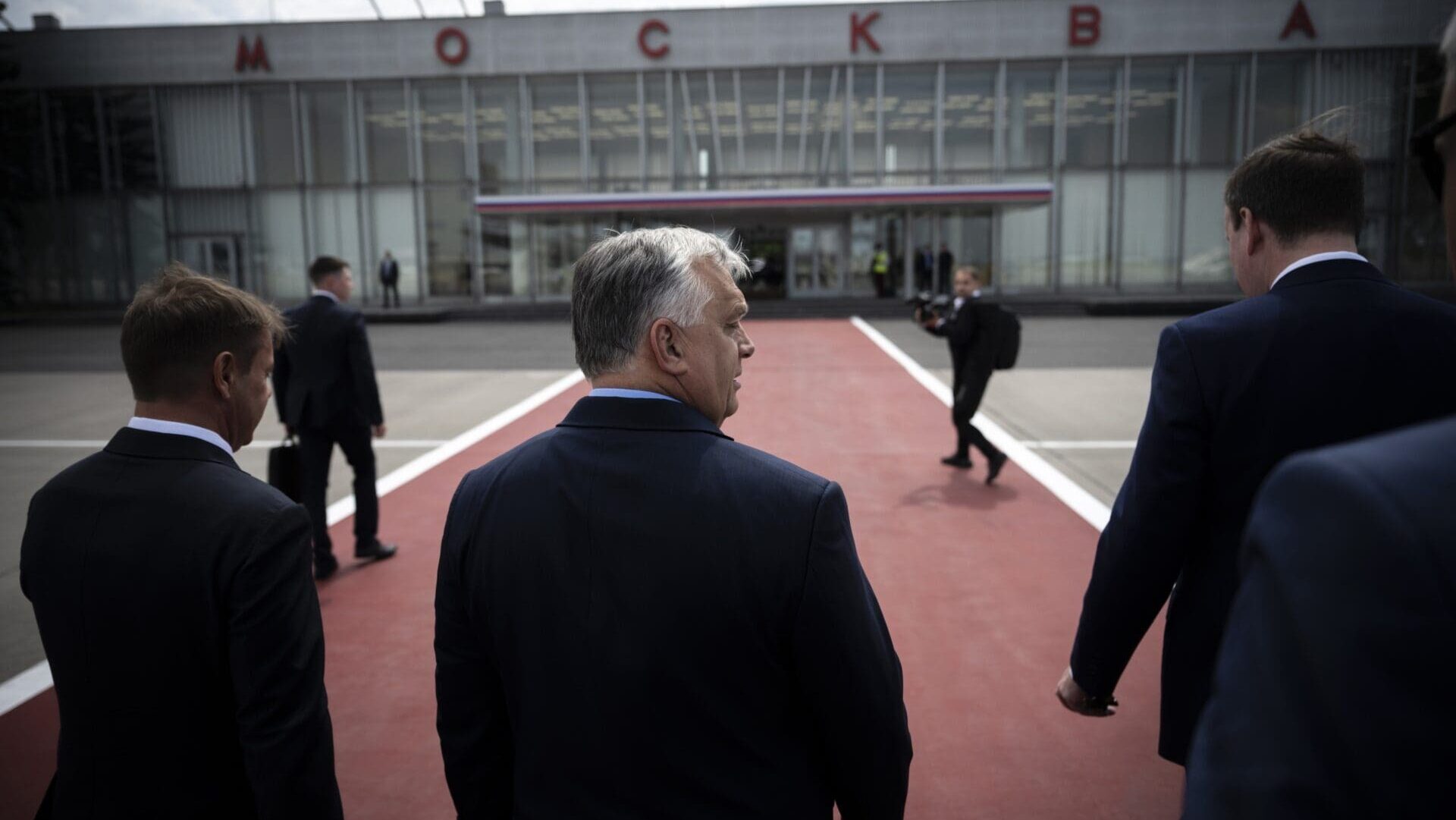Hungarian Prime Minister Viktor Orbán has come under fire from Brussels over his visit to Moscow, where he is scheduled to hold talks with Russian President Vladimir Putin. Orbán’s plane landed in the Russian capital on Friday noon, CET, almost simultaneously with a statement by EU High Representative for Foreign Affairs and Security Policy Josep Borrell, distancing the EU from the prime minister’s visit to Moscow.
‘Prime Minister Viktor Orbán’s visit to Moscow takes place exclusively within the framework of bilateral relations between Hungary and Russia,’ the statement said. The High Representative further clarified that although Hungary holds the rotating Presidency of the Council of the European Union, this does not grant Orbán the authority to act on behalf of the EU. ‘Prime Minister Orbán has not received any mandate from the EU Council to visit Moscow,’ the statement reads. Borrell emphasized that the EU’s official position forbids talks with Putin and Russia.
Prior to this, Charles Michel, the outgoing President of the European Council, criticized Viktor Orbán in a post on X. The Belgian politician, like Borrell, stressed that the EU Presidency does not have a mandate to negotiate with Russia on behalf of the EU. ‘The European Council is clear: Russia is the aggressor, Ukraine is the victim. No discussions about Ukraine can take place without Ukraine.’
The EU rotating presidency has no mandate to engage with Russia on behalf of the EU.
— Charles Michel (@CharlesMichel) July 4, 2024
The European Council is clear: Russia is the aggressor, Ukraine is the victim. No discussions about Ukraine can take place without Ukraine.
It is unclear why EU leaders believe that Viktor Orbán and the Hungarian government are unaware of what powers they have or do not have.
In his regular radio interview on Friday morning, the PM specifically addressed the issue, stating: ‘Hungary has no mandate, just as the rotating presidency has no mandate, to negotiate on behalf of the European Union. We can identify the situation and determine the limits for each side. Once we have done that, the European leaders can make decisions together.’
🕊️ @PM_ViktorOrban on Kossuth Radio: Hungary has no mandate, just as the rotating presidency has no mandate, to negotiate on behalf of the European Union, we can identify the situation, and how far each side can go, and once we have done that, the European leaders together can… pic.twitter.com/XZ3MY7z1OB
— Zoltan Kovacs (@zoltanspox) July 5, 2024
Orbán also visited Kyiv on Tuesday, where he asked Ukrainian President Volodymyr Zelenskyy to consider a time-bound ceasefire to expedite peace talks. The Hungarian PM has already faced criticism for expressing a view different from the EU’s position in Kyiv. However, like today’s visit to Moscow, this visit was not part of the EU Presidency either. Nevertheless, it is evident that distinguishing between Hungarian and EU positions will become increasingly challenging in the coming six months.
Orbán also posted a picture from Moscow on X with the caption: ‘The #peace mission continues. Second stop: #Moscow.’
The #peace mission continues. Second stop: #Moscow. pic.twitter.com/kPOkKBsJQm
— Orbán Viktor (@PM_ViktorOrban) July 5, 2024
According to the Prime Minister’s press office, Orbán will travel to Azerbaijan after his visit to Moscow to attend the Organisation of Turkic States (OAS) summit, which focuses on building a sustainable future through transport, connectivity, and climate policy. The aim of the talks is to promote cooperation between the participating states (Türkiye, Uzbekistan, Turkmenistan, Kazakhstan, Azerbaijan, Kyrgyzstan, and Hungary as an observer) in these areas. Another issue on the summit’s agenda will be the OAS’s relations with the European Union and other international organisations. PM Orbán will also hold bilateral talks with the leaders of the Turkic partner states.
Related articles:








